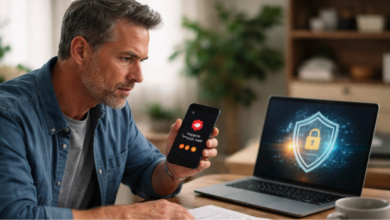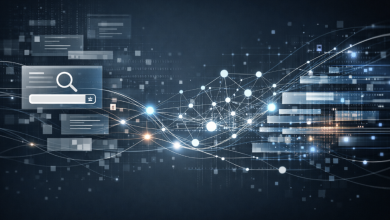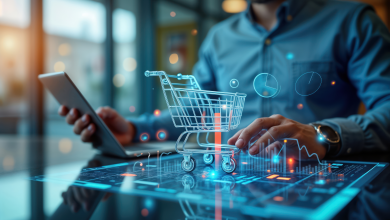
Many people worry that sharing data with online AI tools puts their privacy at risk. Studies show that cloud-based systems can be a target for hackers and leaks. This blog will show you how local AI models keep your data safe and private by processing information right on your own device.
Find out why local AI might be the smart choice for privacy protection.
What Are Local AI Models?
Local AI models use machine learning and run directly on your device or in your own computer network. They do not send data to remote servers or rely on cloud-based systems. Local processing keeps private information close, which helps protect privacy.
Opensource models like Llama 2 and PrivateGPT let people train and use AI tools without sharing sensitive data with third parties. Decentralized AI works well for apps that need strict confidentiality, such as healthcare software or secure financial systems.
Edge computing supports local processing by handling tasks near where the data is created instead of sending it far away. This setup improves data security and reduces risks linked to internet transfers.
Benefits of Using Local AI Models for Data Privacy
Local AI models keep your data on your own devices. You stay in control and limit exposure to outside threats.
Enhanced data security
AI models that run on your own devices help keep your data safe. Sensitive information stays in-house, which makes it harder for hackers to steal or leak it. For example, healthcare apps using local processing protect patient records by not sending them to outside servers. This approach supports strong data protection and reduces the risk of privacy breaches.
Many companies use open-source models and decentralized AI for higher security levels. These tools enhance business success as they control their own machine learning processes without sharing files with cloud providers. Risk mitigation improves as fewer third parties have access to private details, supporting better confidentiality and compliance with privacy rules like HIPAA or GDPR.
Reduced risk of third-party breaches
Data stays on your own devices with local processing. This setup keeps sensitive information out of public clouds or outside vendors. Hackers often target third parties to steal data, so keeping files close lowers risk.
Using decentralized AI means you keep full control over privacy protection and data security. “The safest data is the data that never leaves your hands.” Local models lower exposure to external threats and prevent unwanted leaks. Local AI can also help meet rules set for different industries; more details show up under compliance with regulations next.
Compliance with data privacy regulations
Fewer third-party breaches make it easier to meet key privacy rules. Local AI models help keep sensitive data secure and private under laws like HIPAA or GDPR. Patient communication software, for example, can process patient records on-site using local AI instead of sending them to cloud servers. This means only approved staff can access information, reducing leaks and legal risks.
Schools and banks also use decentralized AI to safeguard personal details while following state or federal mandates. Machine learning tools running locally support privacy protection without exposing confidential files outside the organization’s network. These practices ensure better compliance with strict regulatory requirements in various industries.
Comparison: Local AI Models vs. Cloud-Based AI Models
Local AI models process your data on your own system, while cloud models use remote servers; read more to see which suits your privacy needs best.
Privacy advantages of local AI
Data stays on your device with local AI models. This protects sensitive details, such as medical records or personal chats, from outsiders. No outside company can access or misuse the information. Staff at healthcare clinics as well as practitioners at travel healthcare positions use secure collaboration software powered by local processing to meet HIPAA rules. Patient notes and data never leave their control.
Local machine learning helps limit third-party risks. Law firms and banks pick decentralized AI systems so client files stay confidential during analysis. Local AI makes it easier for schools, hospitals, and other groups to follow strict regulations like GDPR or FERPA without sending private information over the internet.
Performance and cost differences
Shifting focus from privacy protection, local AI models also bring clear changes in speed and expenses. Local processing gives faster response times because the data stays on your device or server, with no need to send it out to the cloud. This benefits real-time tasks such as voice assistants or healthcare applications. Cloud-based AI can handle large workloads but may face delays due to network issues.
For communication and compliance needs that involve storing emails securely over time, cloud archiving remains a vital option. It helps ensure regulatory readiness and reliable access to records across large teams.
Local AI usually requires you to buy or upgrade hardware like GPUs or edge devices. These upfront costs can get high, especially for small businesses. Yet you save money in the long run by using fewer cloud services and reducing data transfer fees. Open-source models help lower software costs too; they often have no license fee and let teams control their own data governance and compliance needs directly onsite.
Steps to Implement Local AI Models
Follow a simple plan to set up local AI models for better privacy and strong data security, then explore more details in the full guide.
Selecting the right AI model
Choose an AI model that matches your privacy needs. Open-source models like Llama 2 or GPT-Neo do not share data with outside servers, which helps protect confidential information. Healthcare teams can use private medical AI models to help spot disease patterns without sending patient details off-site.
Look for machine learning tools with strong security features and local processing options. Pick a model that fits your hardware and works within compliance rules such as HIPAA in healthcare or GDPR in Europe.
Check the model’s accuracy with your own datasets before using it widely. This careful selection supports data governance and reduces the risks of leaks or privacy issues.
Collecting data with secure web scraping
To fuel local AI models with relevant data without exposing it to external servers, many teams rely on secure web scraping tools. These tools help collect public web content—such as market trends, job listings, or product data—that can be used for local model training or analysis. By scraping data directly and storing it on local infrastructure, companies maintain control over the entire data pipeline. This approach ensures compliance with privacy laws while still enabling AI-driven insights.
Ensuring proper hardware and infrastructure
A strong computer or server is needed to run local AI models. Machines need enough memory and processing power for machine learning tasks. For example, a basic language model needs at least 16GB of RAM, while bigger models like Llama 2 may need over 32GB of RAM and a high-end GPU.
Fast storage helps with quick data access and privacy protection because files stay onsite.
Stable internet is only needed for software updates or external research; private information does not leave your network during local processing. Healthcare offices can use secure servers in-house to keep patient data confidential under HIPAA rules.
Teams should also check that their network meets regulatory compliance standards for data security before installing AI tools locally.
Conclusion
Local AI models help protect your data. You keep sensitive information on your own devices. This lowers the risk of leaks or hacks from outside sources. Local processing supports privacy rules in fields like healthcare and finance. With the right setup, you gain better control over your data security and privacy protection.





